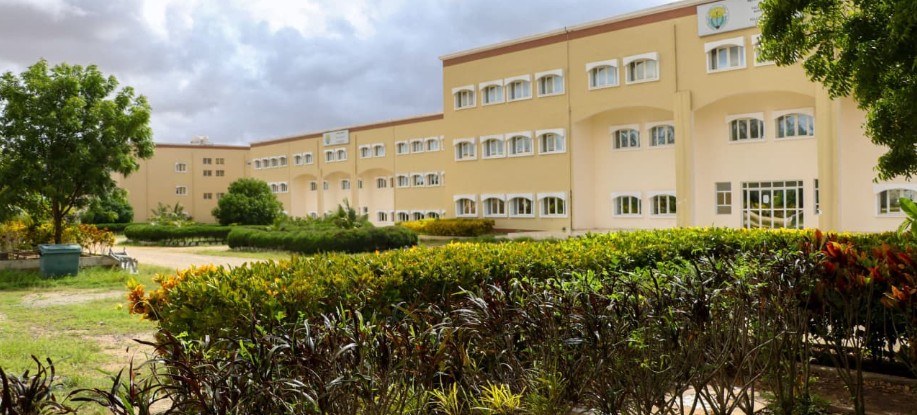Relief for tea farmers as subsidised fertiliser arrives at Mombasa Port after months of delay

The KTDA boss noted that the ongoing short rains had slightly slowed down offloading operations, but the association is collaborating closely with the Kenya Ports Authority, transporters and other logistics partners to fast-track clearance
Tea smallholder farmers will access subsidised fertiliser at Sh2,500 per 50kg bag following the arrival of a 30,000-metric-tonne shipment at the Port of Mombasa, bringing relief after months of delay caused by prolonged court disputes over procurement.
The consignment is set to kickstart the Kenya Tea Development Agency’s (KTDA) annual fertiliser distribution programme, aimed at improving yields and cutting input costs for small-scale tea growers.
More To Read
- Senators push KTDA to adopt scientific tea grading to end bonus payment disparities
- CS Kagwe announces policy overhaul for sugar, tea and miraa to protect farmers’ earnings
- Rift Valley tea producers clash over pricing and representation
- Tea board to probe workers paid without farms in crackdown on fraudulent earnings
- Ruto hails agricultural reforms, cites registration of seven million farmers in digital drive
- Farmers accuse KTDA of favouring Eastern regions in bonuses
Speaking during the flag-off ceremony at the port, KTDA National Chairman Geoffrey Chege Kirundi said the fertiliser will begin moving to factories next week.
“This shipment marks the beginning of several deliveries that will guarantee timely access to fertiliser for our farmers. Another 33,000 tonnes have already left China, and a further 36,000 tonnes will follow within the next eight days to meet national demand,” Kirundi said.
He noted that the ongoing short rains had slightly slowed down offloading operations, but KTDA is collaborating closely with the Kenya Ports Authority, transporters and other logistics partners to fast-track clearance and ensure farmers receive the inputs before the peak planting and maintenance period.
“The fertiliser will begin moving to our tea factories next week. We are doing everything possible to ensure every farmer receives their share in good time,” Kirundi added.
KTDA officials explained that the nearly 10-month legal dispute over tendering significantly disrupted their procurement schedule.
“The legal dispute dragged on for about ten months, eating into valuable logistical time that could have ensured earlier delivery to our farmers. This is the third time in four years that court cases have delayed fertiliser procurement, and KTDA is exploring measures to mitigate such disruptions in the future,” an official said.
Farmers have welcomed the news, noting that access to subsidised fertiliser will reduce production costs and improve yields amid fluctuating global tea prices and rising input expenses.
The fertiliser boost comes at a time of turbulence for the tea sector. Kenya’s tea production fell by 11.5 per cent in the first seven months of 2025 to 322.29 million kilograms, down from 364.13 million kilograms during the same period in 2024, according to the Tea Board of Kenya (TBK).
The decline was largely attributed to prolonged dry and cold weather that suppressed yields across major tea-growing regions. In July alone, production dropped by 4.37 per cent year-on-year to 39.04 million kilograms, with the East of Rift region experiencing a sharper fall of 9.8 per cent, while the West of Rift recorded a smaller 2.8 per cent decline. Factories managed by KTDA experienced the steepest fall at 13.7 per cent.
TBK reported that rainfall levels averaged below 12 millimetres per day in some tea zones, coupled with low temperatures between 8°C and 21°C, contributing to reduced crop performance.
At the Mombasa tea auction, sales fell by 25.6 per cent year-on-year to 25.41 million kilograms in July. Average auction prices dropped to US$2.05 per kilogram from US$2.21, while in Kenyan shillings, prices averaged Sh264.89 per kilogram, reflecting a 7.7 per cent decrease.
Despite the decline, market absorption improved to 55 per cent from 40 per cent the previous year due to wider quality differentials. Smallholder teas fetched a higher average of US$2.32 per kilogram but remained below the US$2.77 recorded in July 2024.
Demand from key export markets, including the UK, Russia, and Sudan remained weak, though Pakistan maintained steady purchases, accounting for 36 per cent of Kenya’s tea exports at 20.06 million kilograms.
In July, tea exports rose five per cent year-on-year to 55.57 million kilograms. However, cumulative exports for the period fell 7 per cent to 330.19 million kilograms, largely due to lower global demand, shipping delays along the Red Sea, and reduced European buying.
Top Stories Today















































